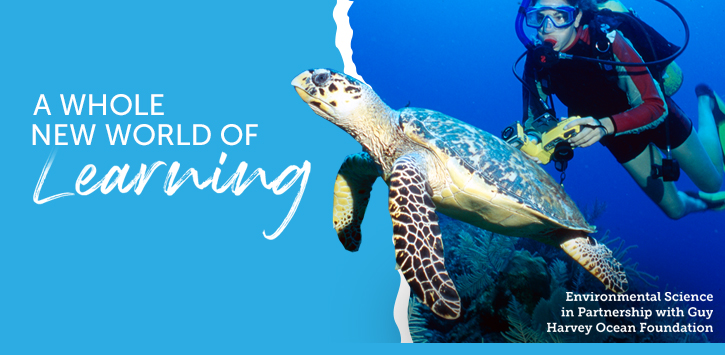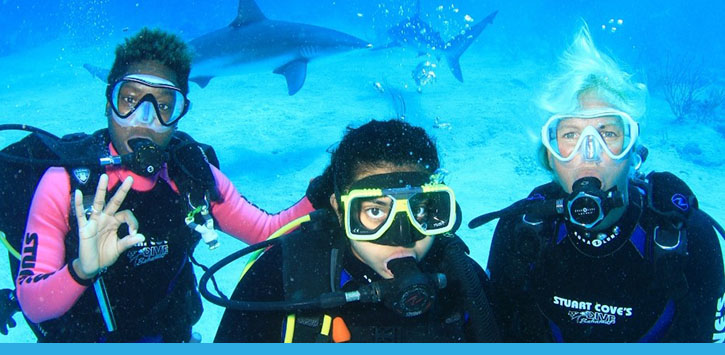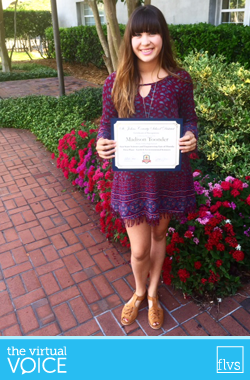Marine Biology
4 Ways to Impact Environmental Conservation
By Florida Virtual School on October 1st, 2021

According to the United Nations, damages from climate-related natural disasters cost about $155 billion in 2018 alone. A cost that is too high for Florida Virtual School teachers and students like Delaney, so they are actively working to reduce it by participating in conservation efforts that reduce human impact on the environment.
Continue readingStudent Shark Advocate Works with Legislators
By Guest Blogger on February 13th, 2019
This post was written by FLVS student and Model United Nations club member James A. La Fayette Jr.

Sierra Boodhoo is a 16-year-old student on a mission to make a positive impact on society. After experiencing racial profiling and bullying at her previous school, she switched to FLVS Flex in 7th grade where her interest in marine biology began. Her interest was sparked when she watched an episode of Shark Week with shark nets. She kept the flame going and researched sharks despite discouragement from others due to age, gender, and other societal bias.
She was told, “You are just an 11-year-old girl. Quit sharks. Switch to something girly like ballet.” Continue reading
Meet Sierra, FLVS Student & Shark Barrier Inventor
By Guest Blogger on July 27th, 2018
 My name is Sierra and Florida Virtual School has provided me the opportunity to pursue various ambitions. My first step with FLVS was taken when I was in 7th grade. This year, I will be going into 11th grade with FLVS Flex. When I attended public school, I was harassed to the extent I had no choice but to leave the school. After much discussion, my parents and I agreed that FLVS was my best option. The summer I started virtual school was peaceful. I just had my school work, family, and the freedom to explore. It was the first time that year that I didn’t have to worry about being bullied.
My name is Sierra and Florida Virtual School has provided me the opportunity to pursue various ambitions. My first step with FLVS was taken when I was in 7th grade. This year, I will be going into 11th grade with FLVS Flex. When I attended public school, I was harassed to the extent I had no choice but to leave the school. After much discussion, my parents and I agreed that FLVS was my best option. The summer I started virtual school was peaceful. I just had my school work, family, and the freedom to explore. It was the first time that year that I didn’t have to worry about being bullied.
With my newfound freedom, I watched my first Shark Week episode that summer. My mom and I spent the rest of that week watching, including an episode featuring Dr. Craig O’Connell’s Shark Safe Barrier. The concept of an innovative shark barrier sparked my imagination and was tangled in my thoughts for a while. Continue reading
FLVS Student Pursues her Passion for Animals
By Guest Blogger on September 13th, 2016
This post was written by tenth grade high school student Madison Toonder. Read about Maddie’s oyster research in a previous blog post here.
 In October 2015, I was awarded a scholarship to attend any pre-collegiate program of my choice for winning second place in the nation in STEM mathematics at the Broadcom MASTERS national science fair competition in San Francisco, California.
In October 2015, I was awarded a scholarship to attend any pre-collegiate program of my choice for winning second place in the nation in STEM mathematics at the Broadcom MASTERS national science fair competition in San Francisco, California.
I chose the Cummings School of Veterinary Medicine at Tufts University’s two-week summer intensive in Massachusetts because it is directly related to my career path.
Tufts’ program is designed to give high school students insight into the rigors of veterinary school. During the program, we attended lectures, studied animal anatomy through fascinating dissections and hands-on palpitations, completed hospital rounds with fourth-year veterinary students, and explored the many different possible career paths within veterinary medicine. My daily agenda was varied and included activities such as learning proper techniques for handling animals, observing surgical procedures, and learning how to perform routine check-ups on a variety of different animals. One of my favorite activities was suturing bananas to practice proper technique. Continue reading
Student Researches Sunscreen’s Effects on Oysters
By Guest Blogger on October 28th, 2015
 Hi! I’m Madison, a student at FLVS.
Hi! I’m Madison, a student at FLVS.
While attending a Busch Gardens camp in the summer of 2014, I learned that the park utilizes oysters to naturally filter their lakes. I soon became fascinated with oysters, and after some research, I discovered oysters are dying globally due to pollution.
After this discovery, I formulated an experiment focusing on the effect of micronized chemical sunscreen (as used in spray sunscreen) and nanosized zinc oxide sunblock (as found in thicker, clear sunblock) on the ability of a bivalve mollusk (or oyster) to filter bay water. Continue reading
